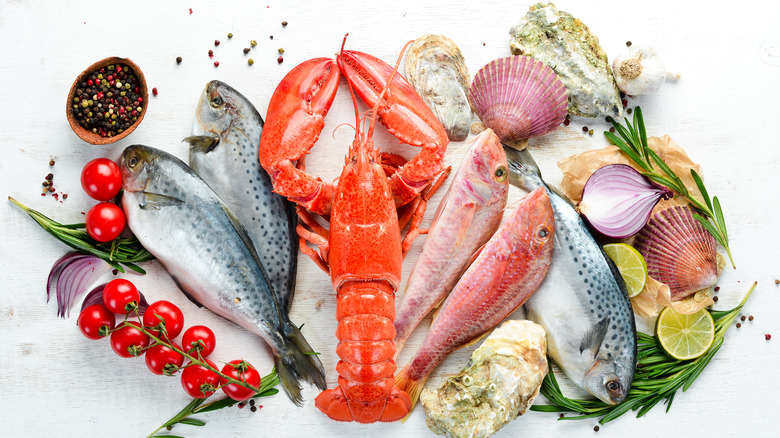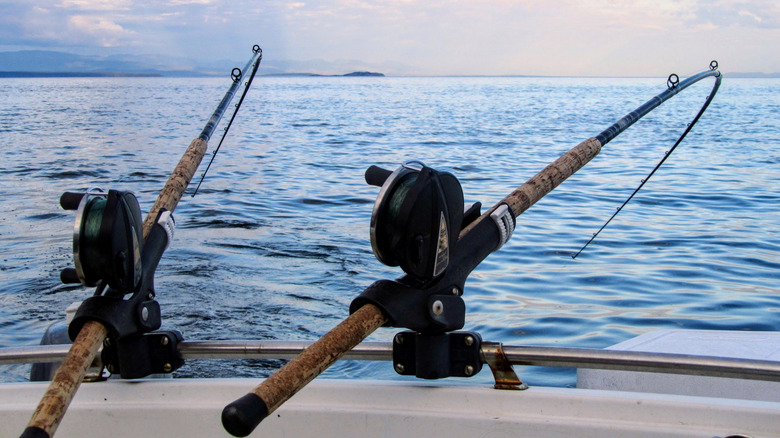The Scientific Reason Mercury Is Often Found In Seafood
If you've ever questioned that third can of tuna you opened in a week, you're not alone. It's well-known that seafood contains mercury and it's something we don't want to consume too much of. On the flip side, if you've ever wondered if you're getting enough fish oil in your diet, you're also not alone. According to the American Heart Association, fish and their Omega-3s are part of a healthy diet. Confused about if you should keep eating seafood or not yet?
While the levels of mercury vary from fish to fish and your levels depend on the amount you're eating (as well as factors such as pregnancy and age coming into play), your consumption is something to be aware of. However, it's not a reason to stop eating fish altogether, per the FDA. That being said, have you ever wondered how an element on the periodic table you probably associate with dental fillings and thermometers ends up on your plate in the first place?
Air to sea to plate
According to Foodprint.org, mercury is found in nature in rocks, soil, and water, as well as in the atmosphere as a by-product of pollution. Once in the atmosphere, it falls and ends up in oceans and large bodies of water. Bacteria in the water turns it into highly toxic methylmercury.
Fish absorb the methylmercury from the food they eat and from water passing through their gills. The higher you move up on the seafood food chain, the higher the level of mercury. Tiny animals and plants known as plankton absorb the mercury. Smaller fish consume this plankton. Larger fish consume the smaller fish, and humans consume the larger fish. Older, bigger fish are more likely to have accumulated higher levels of mercury over their lifetime (via Vermont Department of Health Fish Consumption Advisory).
There is no way to reduce the amount of mercury in the flesh of fish or shellfish. Dangers of consuming too much mercury range from affecting fetal development to impacting your brain, spinal cord, and other organs. What's the best way to keep your consumption low? Stick to the lower end of the food chain and consume smaller fish and shellfish.

